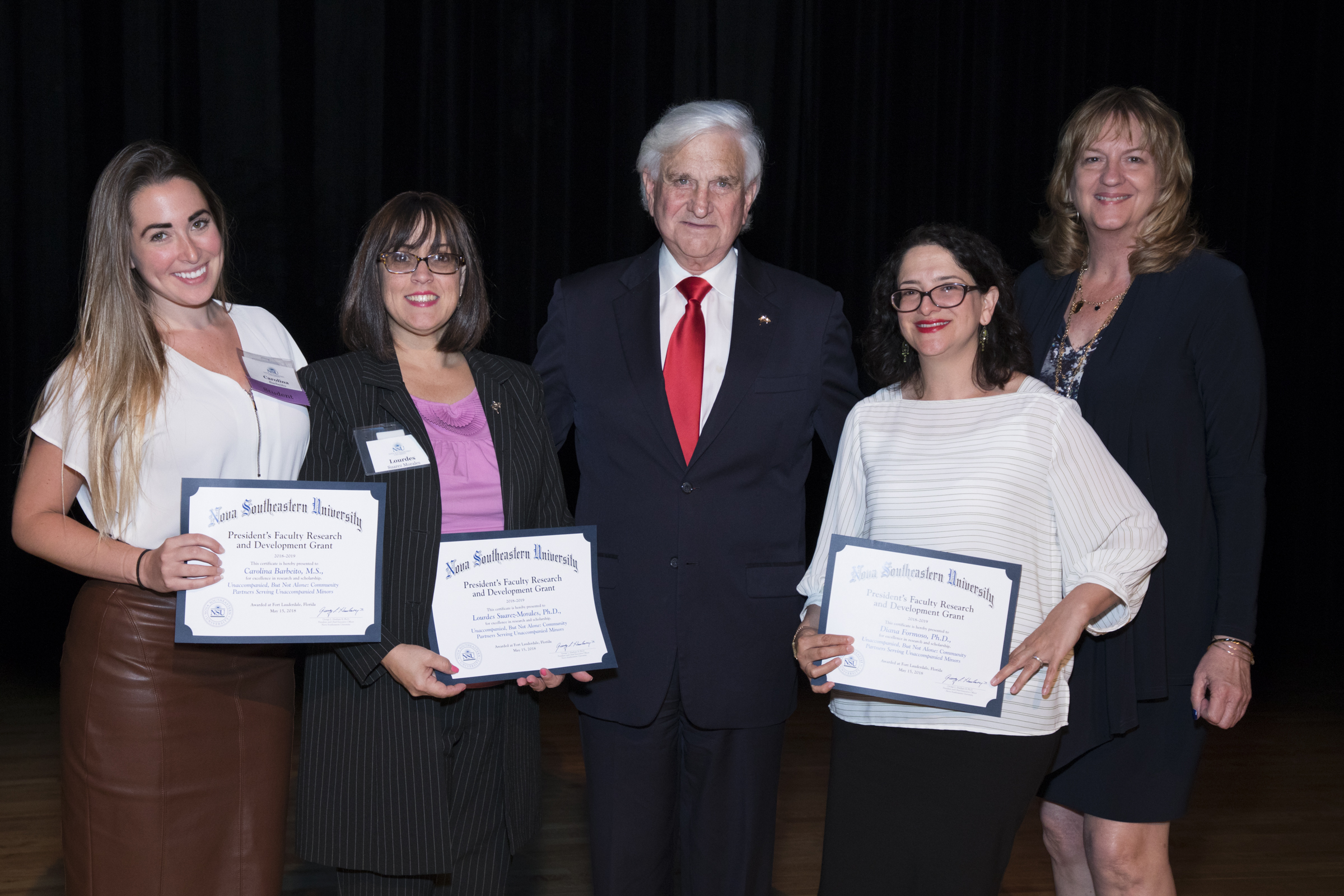Unaccompanied, But Not Alone: Community Partners Serving Unaccompanied Minors
Grant Winners
- Diana Formoso, Ph.D. – College of Psychology
- Lourdes Suarez-Morales, Ph.D. – College of Psychology
- Carolina Barbeito, M.S. – College of Psychology
- Adriana Wilson, B.S. – College of Psychology
Dean
- Karen Grosby, Ed.D. – College of Psychology
Abstract

Unaccompanied immigrant minors (UIM) are youth (under 18) who lack lawful immigration status and who are without a parent or guardian in the U.S. who can provide custody and care. Between 2014 and 2017, approximately 165,000 UIMs attempted to enter the U.S., primarily from Honduras, El Salvador, Guatemala, and Mexico, with thousands of youth coming through South Florida shelters in a year. By all accounts, UIM experience stressful and traumatic circumstances before, during, and post-migration. Most UIM left their home countries due to economic stagnation, poverty, crime and gang-related violence (Kandel et al., 2014). Almost half described fleeing societal violence and one in five described experiencing domestic abuse (UNHCR, 2014). During migration, UIM are vulnerable to human trafficking, kidnapping, and other abuses (Kandel et al., 2014). Upon resettlement, UIM sometimes experience extended stays in detention centers, community violence exposure in resettlement areas, and an uncertain future in the U.S., all without family support to buffer these stressors (Alvarez & Alegria, 2016).
Given these stressful and traumatic experiences, it is not surprising that UIM are at increased risk for mental health problems, including depression, anxiety, behavior problems, and Post-Traumatic Stress Disorder. Despite these pressing mental health needs, little is known about how best to serve UIM. Although the National Latino Psychological Association recently released treatment guidelines for serving UIM, the implementation of treatment guidelines can be a complicated process, particularly when little is known about a community in need and when there are multiple layers of stakeholders whose resources and constraints have to be taken into account.
To these ends, this project seeks to use a community-based participatory research (CBPR) approach to learn more about the strengths and needs of UIM in South Florida and to use that information to guide treatment recommendations and to identify facilitators and barriers to implementation and possible solutions. More specifically, we are seeking seed money from the PRG Research Scholar Track to support a process of community engagement and a strengths and needs assessment, including: (1) to establish a Community Advisory Board (CAB) to facilitate access and engagement with community members serving UIM; (2) to conduct a strengths and needs assessment that can inform treatment recommendations; and (3) to better understand facilitators and barriers to implementation of those treatment recommendations and identify possible solutions. Taken together, universitycommunity partnerships and a CBPR process are meant to pave the way for successful development and implementation of mental health services for UIM in future work.